Reviews
Huey
Agnès Varda
France, 1968
Credits
Review by Leo Goldsmith
Posted on 26 July 2010
Source MUBI.com
Categories Viva Varda: The Films of Agnès Varda
We had peace and love, we had flower children, we had love-ins and sit-ins and huge free concerts. What we found was a real desire for brotherhood that was magnificent, that wasn’t just about making demands. I wasn’t [in Paris], that’s all there is to it—but I saw things they didn’t see.”1
Agnès Varda may not have been around for May ‘68 in Paris, but she made a point of being present for August ‘68 in Oakland. Her short film Black Panthers is a fairly straightforward record of that equally contentious moment, and it offers documentation and a little insight into the collective movement surrounding the Black Panther Party for Self-Defense, focusing especially on the “Free Huey” campaign in the lead-up to the murder trial of Party co-founder Huey P. Newton.
Working with a small crew - including many collaborators from Uncle Yanco, a couple of Frenchmen working with Jacques Demy on Model Shop, producer (for Godard, Coppola, and others) Tom Luddy, and regular Bernard Shakey collaborator David Myers - Varda composed a steady, if somewhat reserved account of the Panthers’ cause, with careful delineation of the Party’s platform: protection from the pigs, education, exemption from the draft, amnesty for incarcerated African-Americans, international black unity against anti-colonialism. Varda & Co. seem to be after a direct and informative account of who the Panthers are and what they want, and although the credits of Black Panthers announce the film as a “reportage” - a word that isn’t quite so loaded in French, but in English generally denotes a work of photojournalism - the film achieves this directness largely through the background information and careful explanation delivered in its voiceover (presumably by photographer Eve Crane).
But if Varda’s approach here seems rather subdued, almost functional, the film nonetheless conveys a sense of both the seriousness and popularity of the movement without diluting the rhetoric of its subjects. In spite of her collaboration on 1967’s more strident Far from Vietnam, Varda’s sense of political filmmaking has always emphasized aesthetics over agit prop, and as such her more polemical works contrast sharply with those of many of her New Wave contemporaries. Salut les cubains, which animates some 6000 stills that Varda took in Cuba in the early sixties, is in her words “about socialism and cha-cha-cha,” but it’s the energy of the latter that gets the point across.2 Here, too, Varda was looking for more direct and approachable means of conveying political messages—Black Panthers is no film comme les autres.
It’s no surprise, then, that Varda’s film begins with the motto “Black is Honest and Beautiful,” followed by images of families and especially children. “This is no picnic in Oakland,” the voiceover explains. “It is a political rally organized by the Black Panthers.” Varda emphasizes community over cause, and while there are a lot of armed men in berets and light-blue and black clothing, brandishing “Free Huey” flags, Varda seems generally more attracted to the women and children with their fists in the air, dancing to live music or listening attentively as Stokely Carmichael proclaims Newton a “prisoner of war” who will be freed “by any means necessary.” As the clarity of the voiceover and the speeches and interviews convey so much hard information - the Panthers’ role in monitoring police arrests, an account of the shooting of 17-year-old Bobby Hutton by police - Varda is free to capture more tangible, vivid, or impressionistic images: a montage of hands clutching copies of Mao’s Little Red Book, military drills, and many details of dress, jewelry, and gesture. Indeed, while the film devotes a good amount of screentime to an interview with Kathleen Cleaver (then the Party’s Communications Secretary and Eldridge Cleaver’s wife), Varda seems just as fascinated with her “natural hairdo” as she does with her role and responsibilities in Panther organization.
Such attention to elements of fashion may seem trivial following so quickly upon shots of Huey Newton discussing his Marxist-Leninist program from Alameda County Jail, but it’s clear that both Varda and Cleaver were aware of the symbolic power of seemingly superficial matters. The Black Panthers were, after all, an important model for radical politics generally, and in spite of their primary affiliation with African-Americans, aggressively put forward a plan that explicitly addressed the concerns of many marginalized groups, including Mexican-Americans, white radicals, and even homosexuals.3 This inclusiveness was frequently minimized by mass media caricatures of the Black Panthers as masculine and militaristic - and support from white American intellectuals was effectively quashed by Tom Wolfe’s dismissive coinage of the term “radical chic.” But for a brief moment the Panthers were vital figures in the international movement of leftist radicalism, and certainly amongst the feminists and student groups of Europe. Jean-Luc Godard would interview Eldridge Cleaver later that year for his abortive collaboration with D. A. Pennebaker and Ricky Leacock, One A.M.. But Varda had beaten him to it, and while her film lacks the sort of political rigor Godard would have brought to the subject, it nonetheless resuscitates many details and nuances of the Black Panthers’ history that are still frequently elided.
- Jonathan Romney. “Step into my office: Agnès Varda’s new career as an installation artist.” The Independent (http://www.independent.co.uk/arts-entertainment/art/features/step-into-my-office-agnegraves-vardas-new-career-as-an-installation-artist-1796261.html).↩
- Gerald Peary, “Interview with Agnès Varda” (http://geraldpeary.com/interviews/stuv/varda.html). ↩
- “We should be careful about using those terms that might turn our friends off. The terms ‘faggot’ and ‘punk’ should be deleted from our vocabulary, and especially we should not attach names normally designed for homosexuals to men who are enemies of the people, such as Richard Nixon and John Mitchell. Homosexuals are not enemies of the people.” Huey P. Newton (1970)↩
More Viva Varda: The Films of Agnès Varda
-
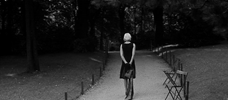
Cléo from 5 to 7
1962 -
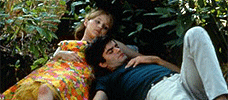
Le Bonheur
1964 -
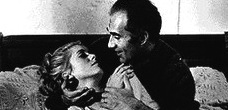
Les Créatures
1966 -
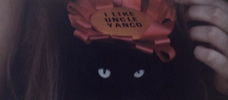
Uncle Yanco
1967 -
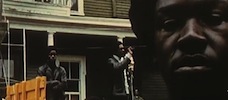
Black Panthers
1968 -
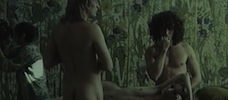
Lions Love
1969 -
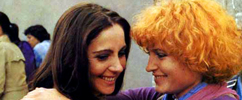
One Sings, the Other Doesn’t
1977 -
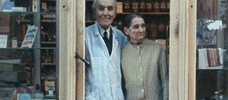
Daguerréotypes
1976 -
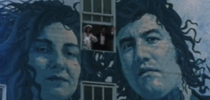
Mur murs
1981 -
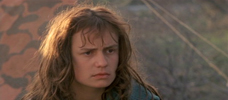
Vagabond
1985 -
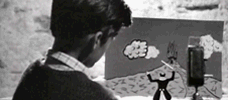
Jacquot de Nantes
1991 -

One Hundred and One Nights of Simon Cinéma
1995 -
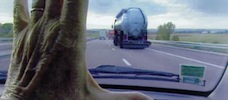
The Gleaners and I
2000 -
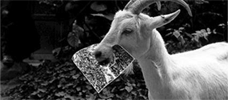
Cinévardaphoto
2004 -
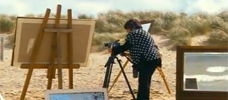
The Beaches of Agnès
2008
We don’t do comments anymore, but you may contact us here or find us on Twitter or Facebook.



